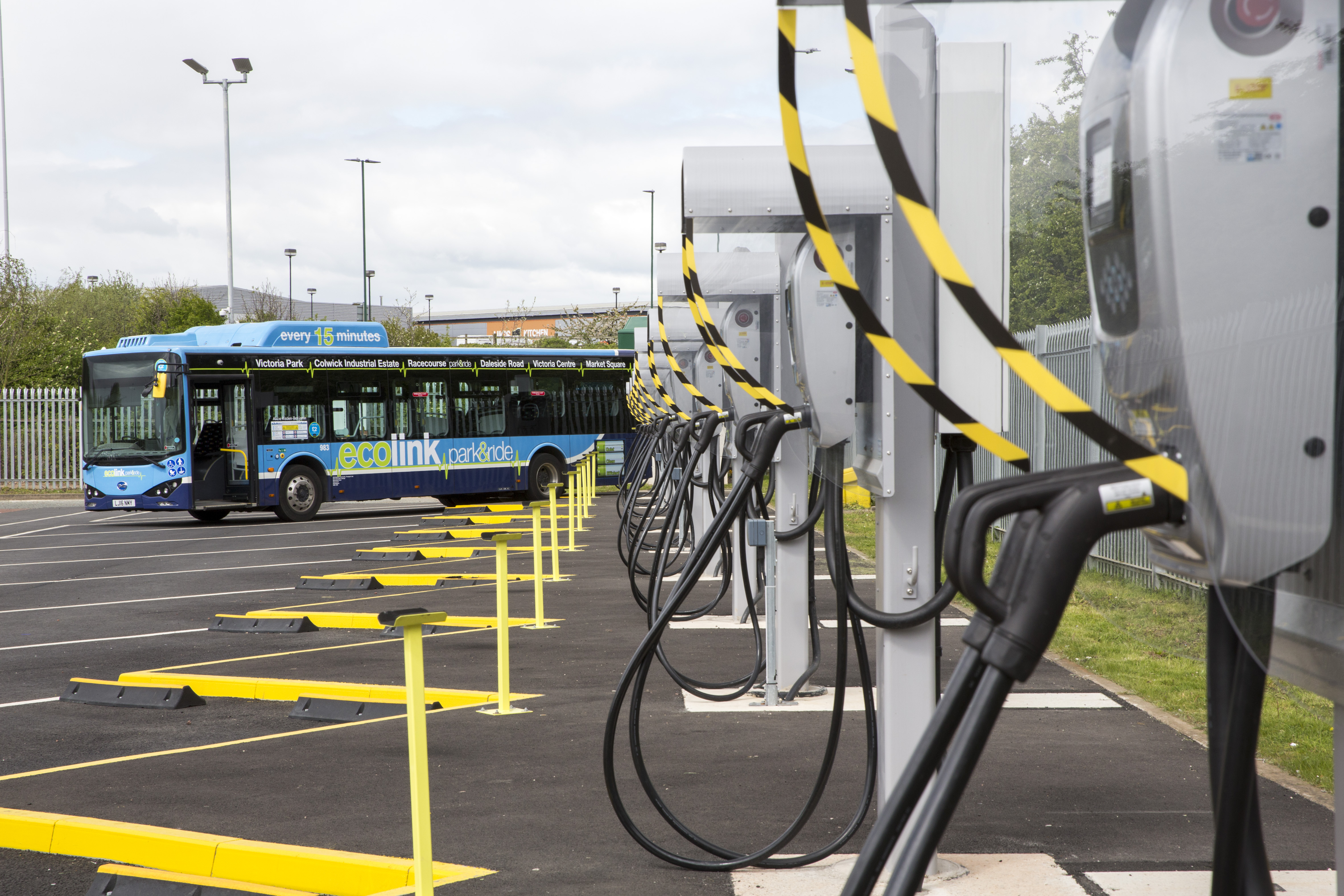
Britain’s first town served exclusively by electric buses will be appointed in 2021, as ministers unveiled a new tranche of funding for local authorities.
However, manufacturers have urged both local and national policymakers to better align ambition and regulation to unlock investment in cleaner public transport.
Yesterday transport minister Grant Schapps urged local councils to apply for a £50 million grant, meeting the costs of a new fleet of up to 200 electric buses to reduce emissions and boost air quality.
The DfT said one town will be chosen by the government as a test bed for all-electric services. “Britain’s first all-electric bus town is just the start”, said the minister. The grant is part of a £170 million package, including £70 million to create “Superbus” networks that prioritise buses.
Bus journeys are in decline, falling 0.7 per cent in the year to March 2019. Some 51 per cent of the nation’s 4.3 billion bus journeys are made in London. But ministers see urban services has having big potential to rebound, delivering clean mobility at relatively low cost.
Much more ambition required
While industry will welcome any funding, net zero targets require a step change in commitment.
Volvo recently told The Energyst that some 1513 new electric buses would need to be registered each year from 2020 to hit a 2050 net zero target, based on the current UK bus fleet. That compares to around 380 in service the end of 2019.
Speaking just before the general election at the launch of Birmingham Airport’s new electric bus fleet, Adrian Felton, head of city mobility at Volvo Group UK, said the sector was concerned about investing in the face of a patchwork of national and regional policy.
 “More cities are moving towards zero emissions aspirations. In terms of the clean air zones that have been put in place, a lot of those mandate Euro 6 standards. However, operators have to consider what the next step will be, because the average life of a bus is fifteen years. [Their concern is] ‘are we going to be investing in something and then find ourselves with different demands in five years time?'” said Felton. “As a result, there is almost a hold off in the bus industry.”
“More cities are moving towards zero emissions aspirations. In terms of the clean air zones that have been put in place, a lot of those mandate Euro 6 standards. However, operators have to consider what the next step will be, because the average life of a bus is fifteen years. [Their concern is] ‘are we going to be investing in something and then find ourselves with different demands in five years time?'” said Felton. “As a result, there is almost a hold off in the bus industry.”
However, that is leading operators to consider electric buses, he suggested, as a fully future proof technology.
Volvo Bus managing director, Nick Page, said that as a global manufacturer, Volvo could ramp up to deliver the required number of buses to hit net zero, should policy ambition match rhetoric.
Page said Volvo expects to see a ramp up in volume in 2022-23. However, he said local and national policy must align in order to get close to net zero.
“The buses are great, but they are just one part of it. The real benefit is around city planning, including trucks, cars, everything. It is getting there, but people have to think a bit wider than they are at the moment.”
Volvo’s Adrian Felton will speak at The Energyst’s ‘Delivering Net Zero’ event, 22-23 April, at Silverstone. Other speakers and sponsors include Arup, Arrival, Arval, Birmingham Airport, BP Chargemaster, BT, Bristol City Council, Cenex, Cranfield University, EDF, Engenie, Ford, Jaguar Land Rover, Liberty Global, Mitie, National Grid, Nottingham City Council, Nuvve, Octopus, UK Power Networks, UPS, Western Power Distribution and more. Register for your free ticket here.
Related stories:
Birmingham Airport launches electric buses, eyes shared infrastructure
Councils given £42m for electric buses
Follow us at @EnergystMedia. For regular bulletins, sign up for the free newsletter.



